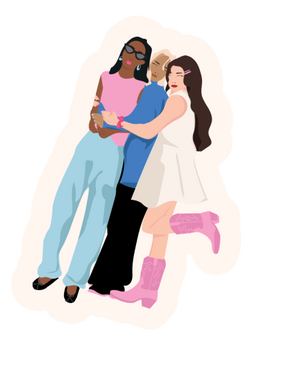How cutting back on alcohol helps anxiety

Alcohol might seem like a good idea at first — it's a nice way to unwind after a long day or have fun while out with friends. However, you can develop a dependence on it or you might even deal with anxiety more frequently than you used to.
Fortunately, there are other ways to work with your anxiety than relying on alcohol. Removing alcohol from your life may benefit your mental health as a whole.
The symptoms of anxiety
Anxiety is detrimental in several ways. Around 6.2% of the American population has an anxiety disorder, and even more than that might not be diagnosed or have semi-frequent anxiety. People who drink alcohol often may feel more anxious than when they're sober or stay away from drinking for a short time.
Common symptoms include racing thoughts or finding it difficult to breathe. Some people may be so used to anxiety symptoms that they may not notice it and just think it's a normal way to live. However, smaller symptoms may indicate an anxiety issue you might not be addressing.
A few of the symptoms of anxiety you might not think about include the following:
- Cold extremities, which could originate from the fight-or-flight response your body reverts to during periods of stress
- Lightheadedness, especially when you're coming down from a panic or anxiety attack where it was difficult for you to breathe
- Avoidance, which can cause you to miss out on fun times with your loved ones or new opportunities to further your successes
- Trouble swallowing, which might come from a higher pulse rate caused by anxiety
- Digestive issues, which make it hard for you to leave the house or try anything new
While anxiety might present differently for everyone, a few symptoms will carry over among most people. Even if you're not the type to panic or have anxiety attacks, you might experience symptoms indicating anxiety problems. Fortunately, before turning to prescription medications, you can try to tackle the problem yourself by cutting back on alcohol and even removing it from your diet.
5 ways eliminating alcohol can help your mental health
Whether you're sober curious or have been sober for a while, you should know the multiple benefits stepping away from alcohol can provide.. Here are just some of the ways alcohol can help you deal with some anxiety symptoms you might see.
1. Lessens the frequency of panic attacks
About 15%–30% of adults will experience a panic attack at some point in their life — if you know what it feels like, you likely never want to repeat it. Because alcohol can amplify your anxiety and panic, you may lessen your risk of having a tiring and upsetting panic attack by eliminating alcohol from your diet.
2. Could increase your self-esteem
Some anxiety symptoms can link to people looking at you. People often drink alcohol to "loosen up" and not to care what others think, but the anxiety can quickly set in and remind that person they do care about how they look to other people. You can feel more confident in your skin and decisions with less tension. When you feel better physically, you'll also feel better mentally.
3. Improves your mood
Your mood could directly correlate to how much alcohol you consume. Those who drink often are more likely to have depressive disorders and are at a higher risk of suicide than people who don't. Once you wean yourself off alcohol, you might notice your mood steadily improve — you could feel happier in the long term and more optimistic about life.
4. Better your memory
Another source of anxiety could come from not remembering what you did or said the night before. While a night of drinking might be fun to some people, it can leave you feeling anxious because you can't remember things about the evening. It could also lead to massive disappointment when you can't recall all the fun that happened.
5. Helps you sleep better
When you drink alcohol, you may notice your sleep quality suffers. Good sleep hygiene is crucial to many functions, like your skin health and mood the next day. Did you know it could also affect how anxious you feel throughout the day?
People with anxiety and depression tend to have worse sleep health than their counterparts. As such, cutting alcohol out of your life for good can lessen your stress, thus giving you a better quality of sleep. You can take several steps to ensure your sleep hygiene is the best possible, like adding blackout curtains or keeping your room cool at night.
Staying away from alcohol can help
If you've been grappling with anxiety recently, try cutting back on how much alcohol you drink. Your tension might worsen before it gets better, as withdrawal can also lead to bouts of anxious thoughts. Still, turning away from alcohol can make a significant difference in your life and help you explore new adventures.
Written by Mia Barnes
Mia is a freelance writer and researcher with a passion for women’s health and wellness. Mia is also the Founder and Editor-in-Chief of the healthy living online publication, Body+Mind Magazine.











